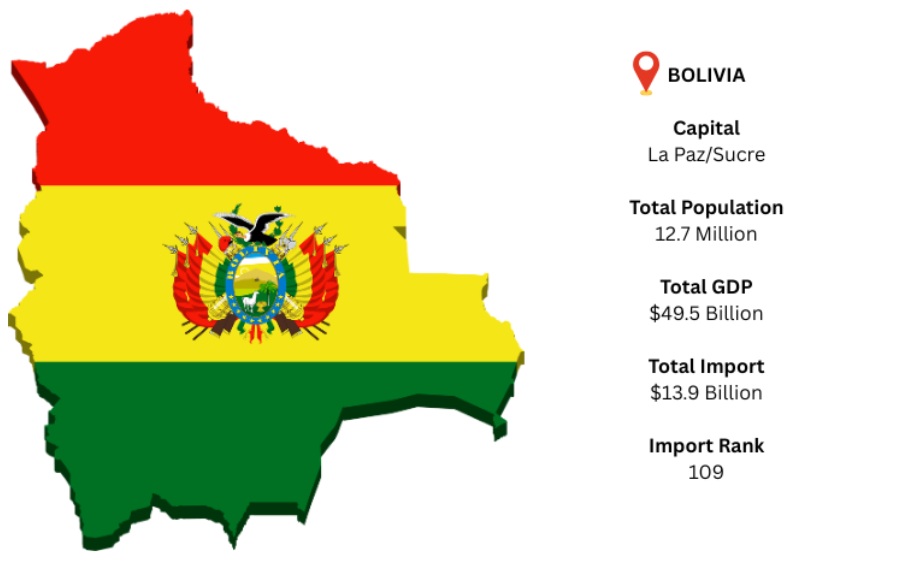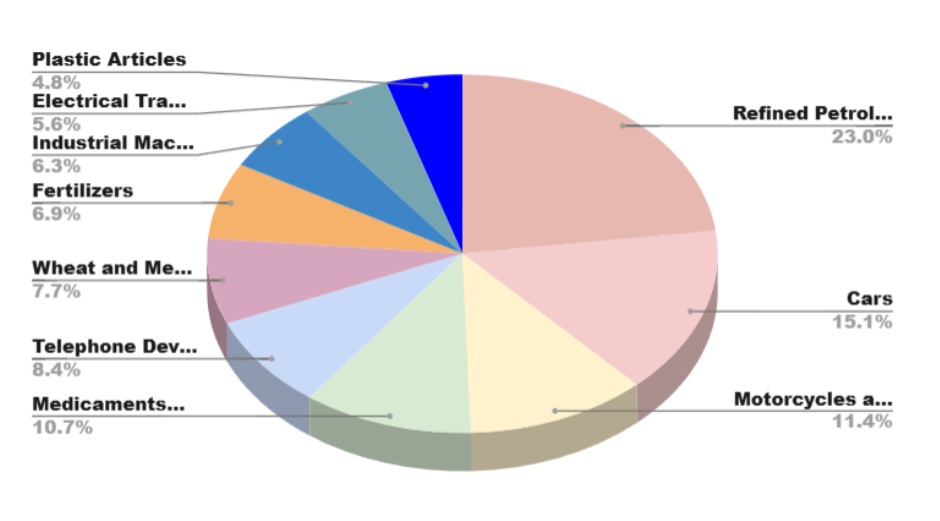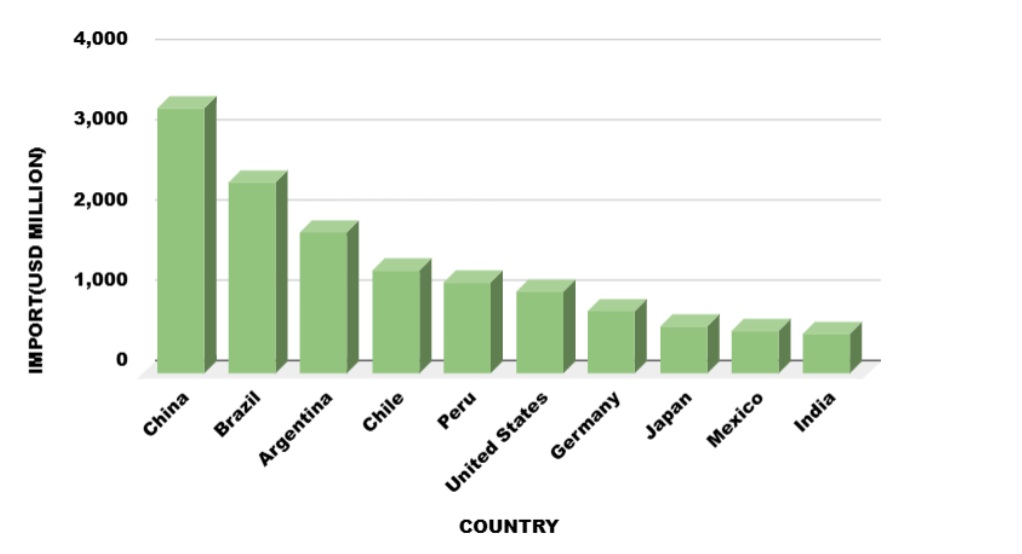Bolivia is a landlocked nation in the center of South America that shares borders with Argentina to the south, Paraguay to the southeast, Chile to the southwest, Brazil to the north and east, and Peru to the northwest. Sucre is the constitutional capital, and La Paz is the seat of government. In 2024, Bolivia's GDP is expected to reach about USD 49.5 billion. As per Bolivia import data, Bolivia is the 109th largest importer in the world, according to the latest global trade figures. China is Bolivia's leading exporter, based on recent trade data. Bolivia's imports are expected to be USD 13.9 billion in 2024, with refined petroleum being the most expensive item.
Bolivia is still heavily reliant on foreign commerce for technology, petroleum, and industrial commodities despite its geographic constraints. As per Bolivia Customs Import data, its advantageous South American location enables it to sustain solid business relationships with both domestic and foreign trading partners. Bolivia has been able to increase its import capacity and trade networks due to recent initiatives to improve infrastructure, road connections, and port access through neighboring nations.



